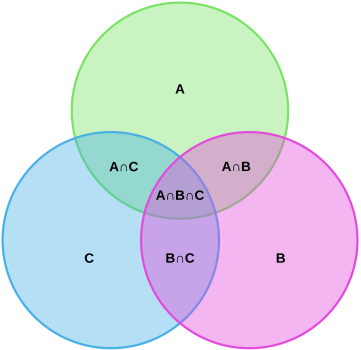I'm glad you did.
Sure, I can explain IDOLATRY of the Bible in 2 other ways. :)
Besides IDOLATRY of translations, the 2nd form of IDOLATRY of the Bible that became obvious to me is doctrine. In my study of Scripture, I discovered there is no Doctrinal Purity Test to be saved. I thank God for this. I believe the human mind struggles to accept how easy God made salvation for us to acquire. It is us that crave the complexity, drives work based doctrine (implied in your post about no true Christian would do X), and is used to justify ourselves pridefully, etc. For instance, I recently learned an acronym TULIP as it pertains to Calvinism.
Ahh, am I to take it that you were having an emotional response to what I said? I think you were reading your own experience into what I said. What I told you is a Biblical doctrine concerning those whom God is saving. When I say that a child of God would do or not do X I base this on my understanding of salvation.
I don't know if you have read my posts concerning OSAS. In those discussions, I point out the fallacy assumption in that debate, a false concept that BOTH sides of the debate get wrong. The underlying false assumption centers on the moment of salvation. When is a person saved? BOTH sides assume what is sometimes called, "the moment of decision." This error comes from a misconstrued passage in Romans 10. (Some refer to this passage as "TNT" = ten nine ten Romans 10:9-10)
Maybe you have this verse memorized.
Romans 10:9-10
9 that if you confess with your mouth Jesus as Lord, and believe in your heart that God raised Him from the dead, you will be saved; 10 for with the heart a person believes, resulting in righteousness, and with the mouth he confesses, resulting in salvation.
Pulled out of context, these two verses can be forced to support the idea that a person is saved
immediately upon the moment of confession. I don't think Paul is describing a solitary, singular moment of confession. He is describing the trajectory of a believer's life experience. In the larger context, Paul draws upon the word of Moses to indicate that faith was always the means to gain God's favor. And if we go back to Deuteronomy we understand that Moses spoke concerning how to live as the people of God. How is a person to spend their life and conduct their affairs in the presence of Yahweh? Moses tells the people, "The word is very near you, in your mouth and in your heart that you may observe it." Deuteronomy 30:14 In other words, as you go about your daily activity, you have the word of God in you.
We can multiply passages wherein we read the promise that if we walk with God he walks with us also. He guides us, he trains us, he disciplines us, he coaches us, and he leads us as a shepherd does. Thus, when I talk about what a child of God would or wouldn't do, my statement assumes this kind of relationship. As Paul told the Philippians, "He who began a good work in you shall complete it until the day of Christ Jesus." (Phil. 1:6)
Bottom line: If I was taught a wrong doctrine, God will help me find this out and correct me. I'm not saying that I will never believe a false doctrine. But God guarantees that I won't believe it for long because I am being schooled (led) by the Holy Spirit. If I should idolize my Bible or my Doctrine (and I'm still not convinced that such a thing happens) I have every confidence that the Holy Spirit will convict and correct me.
I saw a funny meme a few months back. It was of Jesus and a small boy. The boy asked how come only the 2 of them were in heaven. Jesus replied,
"Everyone else had their doctrine just a little off." 
And this leads into the second form of IDOLATRY in Christendom, which repeats Original Sin. The IDOLATRY of knowledge. Truth is, the lesson of Original Sin is lost on many. We are not saved by our knowledge! There were 2 trees and knowledge is aka the tree of death. Steve Cioccolanti of Discover Ministries said the Bible can be summed up in 2 words:
Choose Life (Knowledge is contrary with this choice).
Hope this helps!
I disagree with Steve. Knowledge is not contrary to life as he suggests. (People get some weird ideas sometimes.) He seems to be riffing on the name of the tree: "The Tree of the Knowledge of Good and Evil." In order to understand this name, one need only to return to the account to discover the central issue. What did Eve do wrong?
Well, she ate the fruit of the tree against God's will. That's what she did wrong. But what did Satan say to tempt her to eat? What convinced her to disobey God? In reality, Eve ate of the tree because Satan convinced her that God wanted her to eat of the tree. He convinced her that God would want a mature adult to decide for herself what is good and evil.
In the following passage, notice the "statement-response" aspect of the account below, wherein Satan suggests a reason why Eve ought to eat from the tree and her acceptance of his rationale.
Genesis 3:4-6
“You surely will not die! 5 For God knows that in the day you eat from it your eyes will be opened, and you will be like God, knowing good and evil.” 6 When the woman saw that the tree was good for food, and that it was a delight to the eyes, and that the tree was desirable to make one wise, she took from its fruit and ate.
Eve wasn't tempted by knowledge, she was tempted by her desire for wisdom, which isn't a bad thing. The desire for wisdom is one of God's blessings. We should all desire wisdom. Eve's sin was not her desire for wisdom; her sin was her willingness to disobey God in order to attain wisdom.
Steve is wrong about knowledge. I could multiply verses in the Bible concerning the great benefits of knowledge. But I believe you have placed your finger on a real concern that we would be wise to consider. Paul spoke about the fact that "knowledge puffeth up." In that context Corinthian Christians were eating meat offered to idols, knowing that there is no such thing as an idol. Paul doesn't correct their knowledge; he agrees with them. However, such Christians were insensitive to the mores of fellow believers who still believed that eating the meat was to share in the temple worship. Paul chastised the free believers for acting in a way that forced a fellow Christian to act contrary to his conscience. Love demands that I don't force another Christian to violate their conscience. Better to go hungry than to corrupt the faith of someone else. (1 Corinthians 8) In this situation, knowledge wasn't the problem; the free Christians were correct. It was a lack of love and concern for a fellow believer that prompted Paul to write.
I'm still a bit confused. Again, I hear what you are saying but I don't think you are describing idolatry. What you describe sounds like faith, principle, persuasion, certainty, and confidence. I don't think it follows that if I am confident that I have the correct doctrine, I am suffering from idolatry. I believe what I believe until proven otherwise. That's how the human mind works. All this talk about having your doctrine "just a little bit off" is nonsense to my ears.
But I guess I never attended a church where people believed that we were saved on the basis of having the correct doctrine. Even so, I would not refer to this as idolatry. Why? Because those who believe that we are saved on the basis of what we know are doing what they believe is pleasing to the Lord. And as Paul says, "who am I to tell another person how to serve the Lord." Romans 14.



